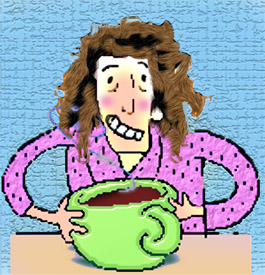 We know that smoking isn’t good for our bodies, and that second-hand smoke can harm our children, pets, and anyone else who comes into contact with it. Yet the decision to quit is no easy one, and for most smokers, quitting is a huge undertaking.
We know that smoking isn’t good for our bodies, and that second-hand smoke can harm our children, pets, and anyone else who comes into contact with it. Yet the decision to quit is no easy one, and for most smokers, quitting is a huge undertaking.
Ending an addiction is never easy. But did you know that natural medicine may be able to help you make the quitting journey a little more comfortable?
Quit Basics
Quitting smoking begins in the brain. First, you have to make that firm decision: I quit. Making a deliberate decision is important, since it can help fuel you with the motivation you’ll need to stay on target. Some have found that It’s helpful to establish a ?quit date,? a firm date on which they’ll stop cold turkey. Note that a gradual approach to quitting smoking is not recommended, since studies show that the all-or-nothing approach to smoking cessation is the most successful.
Natural Options
Although quitting smoking starts in the brain, it doesn’t stay there; the body experiences a wide variety of symptoms during the initial cessation period. These occur as the body slowly withdraws from its nicotine addiction, essentially detoxifying itself. Withdrawal symptoms include insomnia, cravings, a general feeling of unwellness and low energy, and the sensation of being ?on edge.? Fortunately, natural medicine offers a unique toolkit for helping you reduce or eliminate these symptoms.
Acupuncture: One of the oldest types of medicine, acupuncture stimulates the release of endorphins (natural pain relievers), enabling the body to relax. This helps to relieve that tense, ?on edge? feeling. Additionally, because acupuncture treatment increases circulation in the body, it enhances detoxification. This is key to keeping you feeling healthy during smoking cessation. Acupuncture can also help to reduce the cravings that sometimes accompany quitting.
Both traditional and auricular acupuncture are good options for treatment. Traditional acupuncture uses acupuncture needles on various points of the body, while auricular acupuncture uses the same needles (or replacements for the needles, called ear seeds), but only on points located on the ear. In traditional Chinese medicine, the ear holds energy points for all the organs in the body; toning or sedating these can have profound physiological effects on those organs. One important ear point in helping with smoking cessation is the Shen men point, the most ?grounding? or relaxing point of the ear.
Diet: Sugar triggers the addiction centre in the brain, so avoiding and replacing it with whole grains and vegetables will allow you to have a more positive quitting experience. Additionally, regulating your diet can help manage cravings; eating at regular intervals or ?grazing? ensures blood sugar stability.
Herbal Medicine: Herbal medicine, like acupuncture, is another ancient form of medicine. Plants exert physiological actions on the body; in fact, most pharmaceutical drugs originated as plant medicines. Herbal medicines can help in several areas of the smoking cessation journey: increasing relaxation, reducing stress, and controlling blood sugar and cravings. Plants like Avena (oat) reduce the nervous tension associated with quitting smoking. Certain herbs like Rhodiola (rhodiola) target cortisol (stress hormone) levels, since this is often high during the adjustment. Blood sugar control can be achieved through the use of plants like Momordica (bitter melon), and one teaspoon daily of Cinnamomum (cinnamon).
Of particular note: Lobelia (lobelia) was traditionally used by First Nations tribes to help wean users off smoking, due to its piperidine alkaloid constituents. These components mimic the effects of smoking on the body, but in a reduced degree (like the modern nicotine patch). Additionally, some studies indicate that it can render the palate distasteful to smoke.
Quitting smoking is no easy decision, but It’s one that will reward you for the rest of your life. With the help of natural medicine, you can ensure that your smoking cessation journey will proceed more smoothly and comfortably toward your goal.
Katie D’Souza is an AU graduate and a licensed naturopathic doctor. She currently practices in Ontario.
Disclaimer: The information contained in this article is for personal interest only; it is not intended for diagnosis or treatment of any condition. Readers are always encouraged to seek the professional advice of a licensed physician or qualified health care practitioner for personal health or medical conditions.

